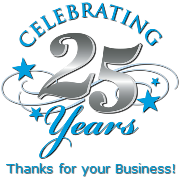
We have been providing high quality hot water power washing and Pressure Free Roof Cleaning™ to residents of Power Wash Jackson NJ since 1990. Our rates are very affordable and the company has been family owned and operated since the beginning.
We are fully insured, licensed by the State of New Jersey and have thousands of happy customers.
Services we provide in Power Wash Jackson NJ include, house washing , power washing, roof cleaning, deck cleaning, hot water power washing, fence cleaning, composite deck cleaning , soft washing and paver power washing.
There are several reasons for pressure washing brick on the exterior of your home. Brick is susceptible to stains and mildew buildup, especially in warmer climates. After storms, homeowners should look for growths such as mold or mildew. Likewise, debris from storms can damage the surface of bricks. It is best to pressure wash your home exterior during favorable weather to avoid any damage. But before you start pressure washing your brick home, it is important to check your house’s exterior regularly. Click here for more info.
Using a pressure washer to clean your brick walls is an effective way to add curb appeal to your home and increase the property value. Besides exterior brick, cleaning brick interior walls can add a fresh look to your home. Various cleaning methods are available, but you may have to experiment first in an inconspicuous area to determine which one works best. Exposed brick is a beautiful addition to any home, and it is commonly used on fireplace mantels.
There are three types of nozzles available for pressure washers. The whitetip produces a 40-degree water stream that is less damaging. While the blacktip produces a 65-degree water stream, it is not effective in removing tough stains and is more useful for wetting a surface. As bricks are porous, water is absorbed by them. Using too high a pressure, however, will result in cracks and interior water damage, which could cost you a lot of money in repair costs.
For exterior brick work, you can use a mixture of dish soap and baking soda. Mix the two ingredients together and apply the paste to bricks. Let the mixture sit on bricks for 10 minutes. If necessary, add a little bit more baking soda. You can also use trisodium phosphate, a powdery compound that you can buy at home improvement stores or even from a construction company. Be sure to wear safety goggles and heavy rubber gloves when handling this chemical, as it can cause serious injuries.
Trisodium phosphate can be a powerful cleaner, but it’s not for everyone. This heavy-duty cleaner contains no ammonia, bleach, or other chemicals and mixes easily with hot water. However, be sure to use protective gear while working with this chemical, especially if you have an allergy to chemicals. As a result, it’s important to read all labels before using this product.
If you’re looking to give your house a facelift, pressure washing with muriatic acid can be the solution. The multi-purpose acid can be used to clean, deoxidize, and remove mold, as well as clean metal and swimming pools. Muriatic acid is actually a diluted form of hydrochloric acid, which has more impurities than regular HCI. To ensure safe use, you should wear protective gear, including wrap-around eye goggles, a respirator, and face shield. Also, you should wear long-sleeved shirts and pants, as well as rubber boots or shoes.
Before using muriatic acid for pressure washing brick, you should make sure that you wear protective gear, such as eye protection, rubber boots, and vinyl-coated coveralls. Wearing protective gear is essential, because exposure to muriatic acid can cause severe burns and blindness. If you accidentally splash the acid on your skin, simply rinse it off with fresh water to neutralize the acid. Alternatively, you can run your garden hose over the surface.
While you might think of soft washing bricks as being a low-pressure process, the fact is that a high-pressure approach can actually cause further damage, including loosening of grout and cracking of bricks. The damage that a brick home sustains after a brick pressure washing process can lead to more serious problems, such as water intrusion and structural instability. Therefore, it is important to follow a few tips and tricks when soft washing bricks.
First, you should always be aware of the chemical composition of the cleaning solutions. Brick is porous and contains numerous tiny holes. Using the wrong detergent can destroy the brick surface, so the more acidic the solution, the worse it will be. This is why soft washing bricks is preferable to standard methods, as standard cleaners may degrade the brick and compromise the mortar structure. To ensure that bricks look their best, use a high-quality brick and mortar cleaner.
While cleaning your brick home is essential, you should also consider applying a sealant to protect it. This will prevent harmful substances from penetrating the surface, leaving it looking new. Whether you’re repairing a cracked wall or simply cleaning your brick exterior, Clean ‘n Seal can do the job for you. With experience in this field, we can help you choose the right product for your needs. Here are some tips to consider when pressure washing your brick home:
Use the correct pressure when pressure washing the brick. Older brick is often weaker than new construction materials, so too much pressure can cause brick cracks. These cracks will ultimately leak interior water and cause costly repairs. Make sure you use a cleaner that is less acidic to brick. This is because standard cleaners can degrade the brick surface and compromise the mortar structure. Therefore, soft washing is preferred. However, this technique is not suitable for every brick type. Next blog post.